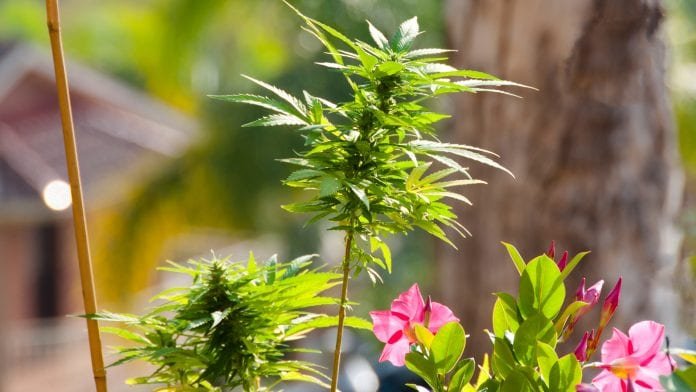According to recent research using marijuana seems to disrupt adolescent mind growth modifying it in aspects that would impair their thinking, decision-making, and learning ability as they get older. The cerebral cortex, the exterior part of the mind involved for intellect, memory, and communication, was shown to be thinner in individuals who began smoking marijuana, according to brains scanning of nearly 800 youngsters.
MRIs Show That Marijuana use in teenagers alters the brain
According to senior scientist Matthew Albaugh, the reduction had an especially negative impact on brain areas related to active recall inhibition, memory, and behavioural control. Teenagers who smoked marijuana by the age of 19 had shown evidence of attentional impulsivity, or a difficulty to remain concentrated despite being distracted, he added.

“Cannabis affects neuron maturation, particularly in certain prefrontal regions and this, in effect, may affect impulsive — one’s capacity to concentrate and stay on task,” Albaugh explained.
His group examined information from lengthy European research of adolescent cognitive growth for this research. Individuals’ minds were examined at the age of 14 and then at the age of 19. Albaugh’s group concentrated on 799 teenagers who indicated they had never used marijuana when they were 14 years old. Initially, brain studies revealed no significant changes in the children.
The kids are questioned regarding their marijuana use once during their obey scanning, allowing scientists to discover whether those who had taken pot in the preceding decades showed any major cognitive abnormalities from individuals who hadn’t. Throughout youth, the prefrontal cortex thins out as neural links are polished and useless connections are cut away according to Albaugh.
Teenagers who utilized marijuana, on the other hand, had more cortical shrinkage, which could affect their overall cognitive ability. According to Albaugh, the increased shrinkage happened in brain locations recognized to be high in receptors that react to the cannabinoids in cannabis, and it looked to be a daily dosage. The shrinkage is more noticeable the more marijuana is used.
The shrinkage of the brains by the age of 19 did not appear to influence any cognitive processes other than perceptual impulsivity, according to the findings. Scientists want to follow those teenagers until they reach the age of 23 to see if further issues emerge in their behavior and ability as a result of their marijuana use, according to Albaugh.
Such results, according to Albaugh, must be taken into account as additional states legalize marijuana for adult consumption usage. “It’s possible that policy is outperforming research. More study is urgently required “he stated “There is a wealth of indication that this developing windows that occur throughout adolescence could be an especially vulnerable period for substance usage,” says the researcher.
“After all kind, no regulatory framework would ever be willing to completely remove youth entry to cannabis” Armentano stated, “but the truth is that such legal structures, when integrated with proof public learning initiatives, are far more effective at discouraging youthful individuals from obtaining cannabis than criminalization has ever been or could already wish to be.
Krakower concurred, saying that the legalization of marijuana had normalized marijuana usage. “The actual problem with marijuana now is that it’s developing such a norm in society that I believe you might speak to children till you’re blue in the head, but who believes it’s a concern if 90percent of their buddies doesn’t believe it’s a problem?” Krakower explained.
